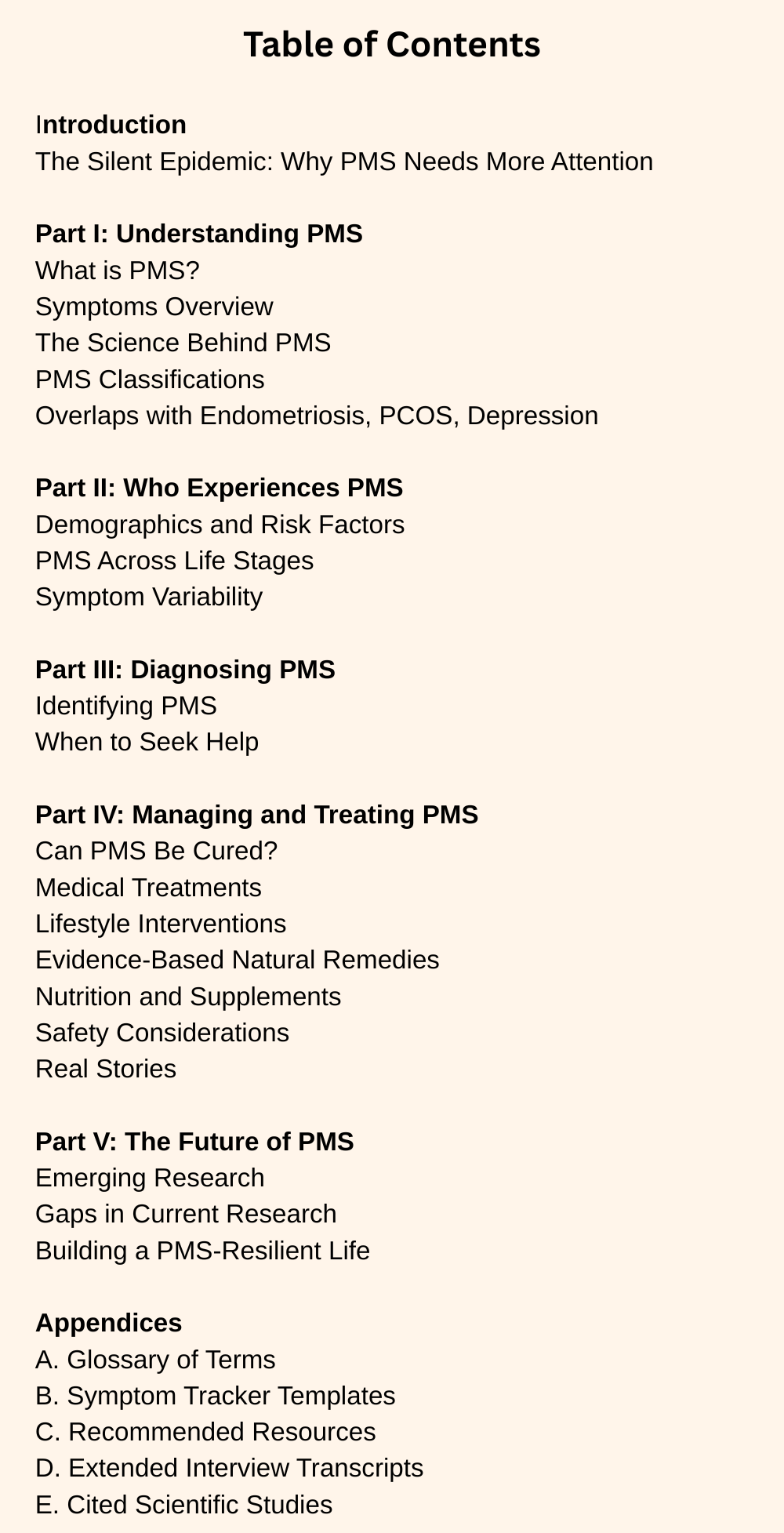Deep Dive: It’s Not “Just Mood Swings”
A deep dive into PMS, PMDD, and the hidden hormonal patterns affecting your mind and body.
The Silent Epidemic
Premenstrual syndrome (PMS) is so common that it affects a majority of women at some point, yet it remains a “silent epidemic” in women’s health. Up to 85% of menstruating women report experiencing at least one PMS symptom, and about 5%–8% suffer symptoms so severe that they meet criteria for premenstrual dysphoric disorder (PMDD). These symptoms – ranging from mood swings and anxiety to debilitating cramps and migraines – can significantly impair daily functioning for countless women. Despite this widespread impact, PMS has historically been trivialized as mere moodiness or a hormonal “curse” to be quietly endured. Terms like “time of the month” are whispered, and women’s very real suffering is often the punchline of jokes rather than a public health priority.
Why does PMS deserve more attention?
For one, the sheer number of people affected and the cumulative toll on quality of life is enormous. In the workplace, PMS-related issues contribute to productivity loss, absences, and misunderstanding – yet these effects are underreported because women feel pressure to just “push through” and not draw attention to their menstrual cycle. In relationships and family life, severe PMS can strain communication and emotional labor, again often suffered in silence. Perhaps most striking is the comparative neglect in medical research and funding. As one women’s health advocate noted,
In 2015 there were five times more studies done on erectile dysfunction than on PMS. Research into period pain is drastically underfunded.
The significant impact of PMS and period pain, affecting far more people than erectile issues, underscores a persistent gender gap in health priorities. Women have been quietly soldiering on despite PMS for generations; it’s time society and science paid attention to this silent epidemic.
Beyond the numbers, PMS epitomizes how women’s health concerns can be dismissed or normalized. Many women have internalized the idea that feeling miserable or “crazy” before a period is just something they must accept. This silence and stigma mean that women often don’t seek help, and even if they do, they risk being brushed off by others. By recognizing PMS as a legitimate medical issue – one that can be managed and treated – we validate those experiences and encourage women to voice their needs. We also push the medical community to address unanswered questions about PMS causes and cures. In short, PMS deserves more attention because the status quo leaves millions to suffer needlessly, caught in a monthly cycle of discomfort that society has all too often ignored or ridiculed.




